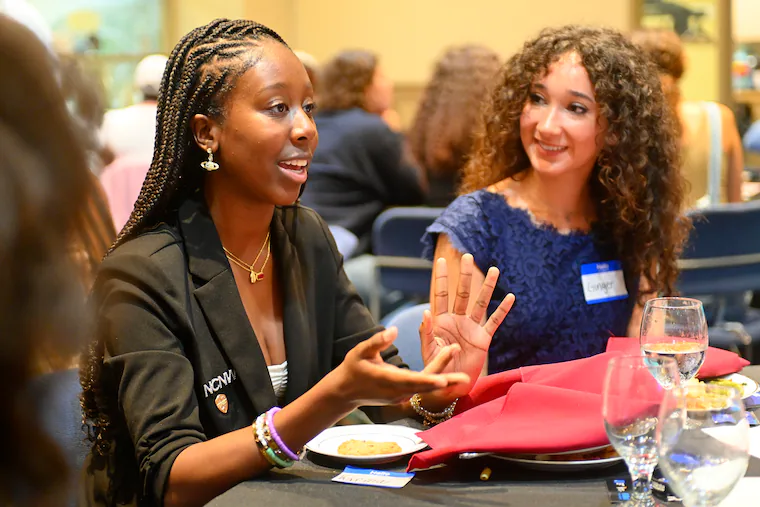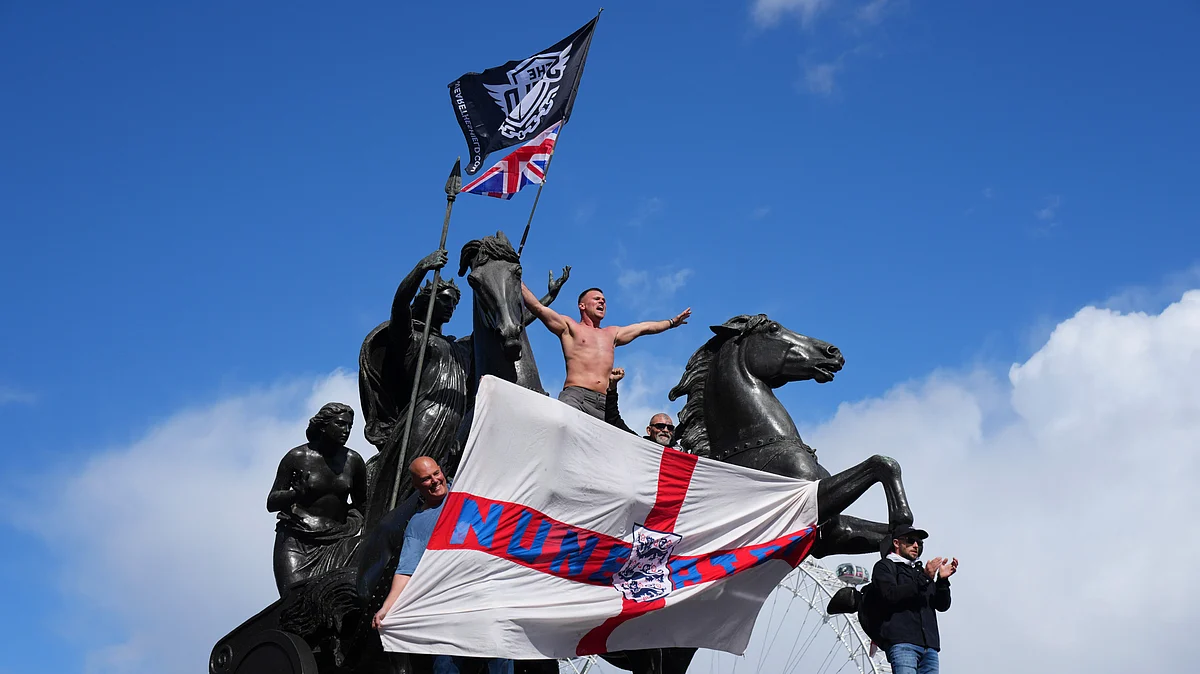
Lincoln University sophomore Aidan Anderson nodded as a peer from Bryn Mawr College described her Jewish community’s diaspora.
As a Black college student, Anderson related: There is no monolithic experience.
“We have a diverse and rich history, both Black people and Jewish people, but it’s also a history full of tragedy,” Anderson said, speaking at a dinner table piled with Tex-Mex, pasta, and apples with honey symbolic of the Jewish High Holidays being celebrated this week. “The fact that we’re all still here today and that we can all come together in this beautiful city — the City of Brotherly Love, is an amazing thing.”
About 60 students from the area’s historically Black universities, Lincoln and Cheyney, and predominantly white institutions — including University of Pennsylvania, Bryn Mawr, Temple, and Drexel — converged Sunday at Penn Hillel for one of the first in a series of Unity Dinners to take place this school year across the country.
Aimed at bridging divides and uniting young Black and Jewish leaders against hate, the program comes at a troubled point in the groups’ shared history, with both facing new pressures in a charged political environment.
“These communities are marginalized and have had a rich history in terms of social justice, and right now, [they’re] not as close as they should be and can be,” said organizer John Eaves.
Eaves, a former Georgia politician based in Atlanta, runs the Tikkun Olam Initiative, a partnership between the Foundation to Combat Antisemitism, the United Negro College Fund, and Hillel International. Tikkun Olam is a Hebrew phrase that means repairing the world, and the unity dinners are a part of the program’s work.
“We’re focusing on the next generational leaders to try to cultivate relationships, friendships now, so that tomorrow, they can be more collaborative.”
At tables of 10, students engaged in a four-part discussion, starting with rapid-fire icebreakers: “Anti-majors,” scariest animals, most embarrassing middle school memories. Shared memories of Nicki Minaj’s concerts at the [former] Wells Fargo Center, and talks of The Real Housewives of New York City and which university — Lincoln or Cheyney — can claim the title of the nation’s first HBCU, evolved into talks of inclusivity, resilience, and spirituality.
The prompts offer a platform for students to empathize with one another, Eaves said.
“Our perseverance is so strong,” said Lincoln University freshman Jaemere Gamble. “We’ve been through so much pain, so much suffering, so much negativity, but I feel like this is the strongest that we’ve ever been.”
According to the Anti-Defamation League, nearly a fifth of antisemitism-fueled harassment, vandalism, and assaults took place on college campuses last year. Since Hamas’ Oct. 7, 2023, attack on Israel, and subsequent unrest on campuses nationwide, the U.S. Department of Education has launched investigations into allegations of anti-Jewish bias on several area campuses. Most recently, the U.S. Department of Education began looking into Haverford College’s handling of antisemitism complaints.
» READ MORE: U.S. Department of Education launches investigation into Haverford College over antisemitism complaints
More than 310 on-campus hate crimes in 2021 were motivated by race, according to data compiled by the National Center for Education Statistics. There have been three hate crimes targeting Black people this year so far on college campuses in Pennsylvania, according to the FBI.
“Regardless of differences in color, race or background and trauma, you can come together,” Cheyney sophomore Travis Lesane said, “and that’s what the dinner here represents.”
Seeded by a $1 million grant from Robert Kraft, New England Patriots owner and founder of the Foundation to Combat Antisemitism, organizers seek to bring together students from 80 colleges and universities in 14 cities this school year.
Upcoming stops include Washington, D.C.; New York City; and Atlanta.



